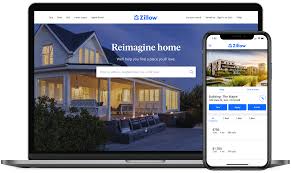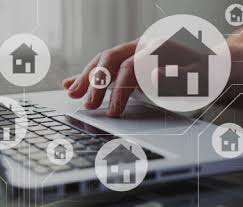Zillow Falling Flat During this COVID-19 Pandemic

“Never let a good crisis go to waste.” – Winston Churchill
If only Zillow had the same mentality as Churchill during this global pandemic their actions might have led to a different strategy than the one they are currently pursuing.
Zillow Offers, like fellow real estate startups, Redfin and Opendoor, have decided to temporarily pause making offers on homes while halting open houses in all markets. With an inventory of over 1,800 homes as of March 2020, a 31% decline in homes at the end of 2019, Zillow had proactively slowed its home-buying pace in preparation for the potential balance sheet impact from this new normal1. While most of the United States is under emergency orders requiring people to stay at home and closing all non-essential businesses, including some real estate-related activities, it has not completely suspended Zillow’s business model as homes are still being marketed and sold on the platform.
However, there is an opportunity now to accelerate down the path transforming digitally, which Zillow has been known for since inception, to differentiate and excel going forward. As a result, I want to propose several steps Zillow can take to be able to come out of this pandemic in the best possible position.
Continue to develop a digital technology muscle:
As consumers buying behaviors and patterns are altered by this pandemic, Zillow should begin to heavily invest in bringing a seamless home buying experience into the hands of consumers. With the significant advancement of AR/VR technologies, Zillow is uniquely positioned to incorporate these technologies into both the home buying and home selling process. By using AR/VR, Zillow will be able to allow consumers during the pandemic to virtually experience homes using high-quality content, which they would otherwise be unable to visit in person2. This added feature/functionality could be monetized on the platform as it provides added convenience for homebuyers by enabling them to visit multiple properties in a day compared to driving around a city for an entire day on housing visits. Likewise, this further helps remove the incentive of disintermediation from the picture because consumers have already committed a minor amount financially to the use of this platform, which could even be recouped once a home is purchased.
In addition, other technological changes can be applied across the house buying process and do not require as much capital investment such as keyless entries. We have already seen numerous applications of this technology including in hotels to eliminate check-in frictions and minimize the need for human interaction, as mandated through various social distancing protocols. Conversely, keyless entries reduce the need to have several agents with packed schedules in the field showing units to potential home buyers, therefore reducing overhead and operating costs.
The use of these types of technologies not only enhances the home buying and selling experience during this pandemic but provides Zillow with a differentiated consumer experience, which will serve them well in the years to come.
Leverage data analytics to enhance pricing:
Although consumers are limited in their ability to leave their homes and are sequestered in place it does not mean life as we know it has stopped. For one, there are still bills to be paid, jobs to start/stop and ongoing life changes to deal with. All these constants in consumers live paired with the current unknown and low interest rates should be an opportunity for Zillow to enhance their proprietary pricing algorithm to find better housing deals. In addition, Zillow should consider adding additional data sets into their pricing algorithm specifically to target cities or communities where jobs are starting/stopping to enhance home buying based on the evolving consumer needs. They have a role to play for consumers now more than ever to facilitate capital flow to consumers in a liquidity need while bolstering their inventory to supply the transient consumer base. By refining their data analytics during these times high-value properties can be acquired for eventually higher margin sales.
Create a robust innovation funnel:
To continue to innovate and develop products and services to consumers Zillow must evolve the organizational structure to one centered around innovation. Economic situations, like today’s current state, caused by external forces may continue in some capacity in the future and as a result, the organization has to be ready to go to market with other transformational offerings to deliver and capture value. To be adequately positioned to do so Zillow should foster a culture of innovation complemented with the capabilities of rapidly prototyping and testing ideas in support of the customer journey. Likewise, by launching internal and external crowdsourcing challenges Zillow will be able to leverage the power of internal expertise while tapping into the broader consumer experience to identify potential opportunities. In addition, Zillow can develop innovation centers in various geographical locations to bring consumers in house to assist with product testing and feedback gathering to help adjust solutions in real-time before significant capital expenditure.
Never let a good crisis go to waste:
Today’s new normal should be used as a catalyst to jump forward with organizational changes, digital transformations, and previously paused initiatives all to help bridge the divide from what we as consumers have been used to and where industries are heading thanks to the digital revolution. Zillow should be no different and are positioned to rethink the current pandemic strategy and leverage its technical expertise to come out a winner, not a stagnant real-estate tech company.
Sources:
1 https://techcrunch.com/2020/03/23/zillow-suspends-home-buying-due-to-covid-19/
2 https://www.aithority.com/guest-authors/how-ar-and-vr-are-changing-the-real-estate-industry/






Great post, Robert! Thanks for sharing.
I’ve been using Zillow a lot during this quarantine and in the last few weeks have seen a lot of home prices that have dropped significantly. And the trend appears to be accelerating. I wouldn’t be surprised if Zillow Offers starts to ramp back up their home purchases in the coming months to buy low and sell high in the future. As you said, with their proprietary pricing algorithms, they should be better positioned than most to identify good opportunities as the housing market becomes quite volatile.
More broadly, I think (and hope) that this COVID-19 crisis will accelerate the democratization and digitization of the home buying experience. The fact that realtors still make ~6% commissions on home sales is ABSURD given that tools like Zillow have dramatically reduced the information asymmetry / expertise that could’ve maybe justified that fee back in the day. I really hope VR/AR home viewing becomes the wave of the future, whether its Zillow leading the charge or another player.
Great piece! The thing I wonder most about is the extent to which the VR idea could truly eliminate the real estate agent vs minimize their role, bringing down their commission. While I agree this technology could help in some stages of the buying process, given the magnitude of a home purchase, I’d be really curious to see at what stage of the funnel, buyers are no longer willing to rely entirely on VR. One other thought I had on the hardware cost, Zillow could rent out the headsets during the search process, capturing an additional fee and hopefully convincing more buyers to leverage the VR capabilities.
Really interesting ideas! I do think virtual tours are being adopted by people far better than expected, but its true mostly for rentals. Buying is a huge commitment, which not a lot of people will decide on just based on an AR/VR simulation. As populations become cash crunched, not as many people are willing to invest during risky times. But the time is ripe for investing. If Zillow is healthy on cash, it would be a good time to buy properties during this fire sale and sell them at a much higher margin later. Pushing current properties out might have negative returns. I do think they have the opportunity to tap into the sublet market at this moment. With a lot of people moving back to hometowns/countries, the sublease market is booming with everyone trying to match on facebook. Instead, Zillow could provide more information for these bargain-hunters around what apartments are up for sublet, what price is right, how many options are open in the area. Connecting through a trusted partner like Zillow is something a lot of us would pay for compared to randomly looking at listings in very spam-y facebook groups.